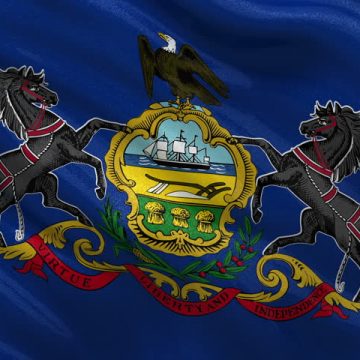
Although they have had the go ahead since last fall’s passage of the state budget to begin, lawmakers and gaming officials in Pennsylvania to this point haven’t done much of anything regarding opening the state for online gaming and poker. That changed earlier this week as the head of the Pennsylvania Gaming Control Board announced a timeline for gaming to begin in the state.
Tasked with crafting the regulations and licensing procedures, Pennsylvania Gaming Control Board Executive Director Kevin O’Toole informed lawmakers on Tuesday that his organization was nearly ready for the licensing process to begin. In his report to lawmakers, O’Toole stated that the licensing process would begin on April 16. From that statement by O’Toole, the rest of the timeline regarding online gaming and poker in the Keystone State can be extrapolated.
If the process begins on April 16, all in-state operators of casino gaming have the “right of first access” to the gaming licenses that are available. Over the course of the next 120 days, such operations as Rivers Casino in Pittsburgh, Sugar House Casino in Philadelphia and Sands Bethlehem (now expected to be a player in Pennsylvania’s online gaming industry since anti-online gaming advocate Sheldon Adelson sold the property to Wind Creek Hospitality, the corporate front of the Poarch Band of Creek Indians of Alabama) will be able to apply for any or all of the three licensing options available – casino table gaming, online slots and online poker. The cost of those licenses will initially be $10 million.
After 90 days, the price to be able to play in the new Pennsylvania system will kick up. Instead of the $10 million base price for licensing across all three platforms, the price will go up to $4 million for each operation and those businesses in the Pennsylvania market will be able to pick their options for licensing. This will hold through the end of the 120-day period, which brings us to August 16.
Once that initial 120-day clock expires, then any casino or online gaming company outside of Pennsylvania can apply for licenses, provided that there is any left after the in-state “rush.” Currently the regulations allow for 12 licenses each for the three options, ironically the exact number of casinos that exist in Pennsylvania. There is another 120-day clock for those outside of the state to apply and they would pay the same amount – $4 million – that those in-state operations did for each license.
After the PGCB receives the first applications, then they also have an “action” clock placed on them. By the regulations in the state, the PGCB would have 90 days to act on a received application. This would mean that the PGCB would have 90 days to either approve, reject or table those applications.
IF the first application came in immediately on April 16 (not out of the question but highly unlikely), that means that the PGCB would have to do something with it by July 16. Still, this doesn’t mean that they will go online immediately with their product. There would have to be extensive testing done on the software that the licensees would be using, surely another 60-90 days. That means that the earliest potential date for any online gaming in the state of Pennsylvania would be between September 16 and October 16.
Perhaps the only questions left for the Pennsylvania online gaming industry is who the players in the game will be. Will the dozen casinos inside the state – and a potential 13th, Pennsylvania LIVE!, on the horizon (when this casino is opened, a 13th license has already been approved in each of the three categories) – buy up all the licenses and prevent any outside operations from entering the state? Furthermore, just because an operation purchases a license, are they forced into using it? If this is the case, all the casinos could exercise their rights to buy up the licenses, but only a few could actually come out with a product for people in Pennsylvania to play.
While we’ve been able to extrapolate the potential key dates for Pennsylvania’s entry into intra-state online gaming and poker, nothing is set in stone. Further bickering over the regulations and/or delays (potential lawsuits from outside operators that have been shut out of the market?) could push the opening later. If this happens, that once optimistic September 16 opening date could go later into 2018 and perhaps even push it into the new calendar year.















